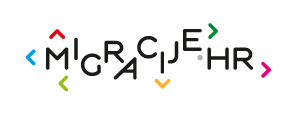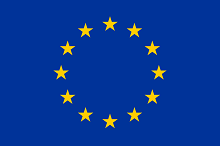Since Croatia’s accession to the EU, persons engaged in business activity in two or more EU/EEA Member States and Switzerland are, in Croatia, subject to the EU regulations on coordination of social security systems.
One of the fundamental rules of the Basic Regulation states that social security system of only one member state applies to persons moving within the European Union, meaning that you can be insured in only one EU country at the time. Persons who engage in business activity as employed or self-employed person are subject to legislation of the country in which they engage in such activity.
One of the exceptions to this rule refers to persons engaged in business activity in two or more EU Member States. In order to maintain legal certainty and the application of only one legislation, special rules on determination of legislation applying to such persons were laid down.
Who is subject to rules on determination of relevant legislation?
Special rules apply to persons:
- Engaged in business activity as employed persons in two or more Member States
- Engaged in business activity as self-employed persons in two or more Member States
- Engaged in business activity as employed and self-employed persons in two or more Member States
- Employed by the Member State as civil servants, who also perform business activity as employed or self-employed persons in one or more Member States; and
- Employed as contract staff of the European Communities.
Persons engaged in business activity as employed persons are defined by the Basic Regulation. In Croatia, this group refers to persons who realise income from paid employment. The Basic Regulation also defines persons engaged in business activity as self-employed persons. In Croatia, such persons realise income from self-employment, including agricultural activity.
Determination of legislation which applies to persons engaged in business activity as employed persons in two or more Member States
A person is considered to be engaged in business activity as employed person in two or more Member States when such person is at the same time or occasionally engaged in one or more different business activities as employed person by one or more employers in two or more Member States.
Such person is subject to legislation of the Member State of his or her place of residence (the place of his or her permanent residence) or legislation of the Member State where registered office or place of business of the company or employer employing such person is located.
Determination of legislation which applies to persons engaged in business activity as self-employed persons in two or more Member States
A person is considered to be engaged in business activity as self-employed person in two or more Member States when such person is at the same time or occasionally engaged in one or more separate business activities in the capacity of self-employed person, irrespective of the nature of such activities.
A person engaged in business activity as self-employed person in two or more countries is subject to legislation of:
- The Member State of self-employed person’s place of residence when he or she performs a substantial part of business activity in that Member State, or
- The Member State where the centre of interest of such business activity is located when the person does not have a place of residence in one of the Member States in which he or she performs a substantial part of his or her business activity.
Determination of legislation which applies to persons engaged in business activity as employed and self-employed persons in several Member States
A person engaged in business activity as employed and self-employed person in two or more countries is subject to the legislation of the country in which he or she is engaged in business activity as an employed person. When a person is engaged in business activity in the capacity of employed person in two or more countries, the country of legislation applicable to him or her is determined in the manner described above.
Determination of legislation applicable to civil servants engaged in business activity in two or more countries
A person engaged in business activity as a civil servant is subject to legislation of the Member State to which the government office employing him or her appertains. When a civil servant performs business activity in two or more countries for two or more government offices, he or she is subject to legislation determined in the same manner as described above for persons engaged in business activity as employed persons in two or more countries. When a person engages in business activity as a civil servant in one Member State and engages in business activity as employed or self-employed person in another Member State, such person is subject to the legislation of the Member State to which the government office employing him or her appertains.
Determination of legislation applicable to contract staff of the European Communities
Contract staff of the European Communities may choose which legislation they will be subject to. They may choose between:
- Legislation of the country of their employment
- Legislation of the country which applied to them most recently
- Legislation of the country of which they are nationals.
They will be able to make such choice only once, at the time of entering into employment, namely at the commencement of applying the chosen legislation.
Procedure in case of engaging in business activity in two or more Member States
A person engaged in business activity in two or more EU Member States must notify the competent institution in the country of residence. When a person fails to meet this obligation, the procedure for determining the legislation applicable to that person will be exercised ex officio, when such fact becomes known.
The competent institution in the country of residence will, after carrying out the procedure for verification of all circumstances in a particular case, make a decision on the legislation to be applied. When making such decision, a prediction of circumstances expected in the next 12 months must be taken into account. The said decision may stipulate that such person is subject to either legislation of the country of residence or legislation of another Member State. All Member States in which business activity is engaged in or where registered office or place of business of the company or employer is located must be informed of the decision. The decision is considered provisional and will become final two months after competent institutions have received it but failed to inform the competent institution of the country of residence of their disagreement with the decision within the designated period, or earlier, should they agree with the decision.
The competent institution of the country whose legislation is determined to be the applicable legislation will inform the person and issues him or her the A1 certificate. The A1 certificate is a standard form valid throughout the EU which is considered the proof of legislation applicable to a person confirming that contributions are paid in the stated Member State and that there is no outstanding obligation to pay contributions in other countries where business activity is engaged in.
Jurisdiction for determination of legislation applicable in the Republic of Croatia
The process of determining the legislation applicable to persons engaged in business activity in two or more countries falls within the competence of the Croatian Pension Insurance Institute.
Documentation required for persons engaged in business activity as employed persons in two or more countries:
- Completed form on employment in several Member States
- Employment contracts
- Employer’s confirmation of the amount of salary (or payroll certified by the employer)
- When necessary, other evidence of working hours (especially for transport workers – driving schedules, number of loadings and unloadings).
Documentation required for persons engaged in business activity as self-employed persons in two or more countries:
- Completed form on employment in several Member States
- Printed copy of the FINA Annual Financial Statement Register entry (GFI form), or the Tax Administration
- Certificate on the amount of income
- When necessary, other evidence.
Forms on employment in several Member States are available on the website of the Croatian Pension Insurance Institute www.mirovinsko.hr.
As of 9 January 2023, the HZMO LANA system has made it possible for existing and new users, authorised persons of contribution payers who are already registered or are registering for the first time in the e-Prijave HZMO LANA (HZMO LANA e-Registration) e-service to submit a request for the issuance of a transferable A1 document for persons working in two or more EU Member States in order to determine the applicable legislation, without having to personally come to the HZMO offices. Detailed user instructions in Croatian are available at the following link: https://lana.mirovinsko.hr/upute/html/
Relevant links:
- Foreginers Act (Official Gazette, no. 133/20, 114/22 and 151/22)
- Act on EEA Nationals and Members of Their Families (Official Gazette, no. 66/19, 53/20, 144/20 and 114/22)
- Regulation 883/2004
- Guide for persons engaged in business activity in two or more EU Member States
- Exceptions from the rules for determination of applicable legislation
- Special rules for the determination of legislation which applies to mariners
- Practical guide on applicable legislation in the European Union (EU), the European Economic Area (EEA) and Switzerland
- Applications for persons employed in several EU Member States
- Practical guide – the legislation that applies to workers






